The African Americans: Many Rivers to Cross - Season 1
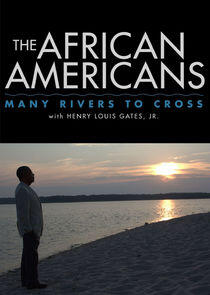
Season 1

Episodes
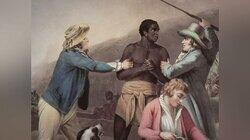
The Black Atlantic (1500-1800)
This episode explores the global experiences that created the African-American people. Beginning a century before the first documented "20-and-odd" slaves who arrived at Jamestown, Virginia, the episode portrays the earliest Africans, slave and free, who arrived on these shores. The transatlantic slave trade soon became a vast empire connecting three continents. Through stories of individuals caught in its web, the episode traces the emergence of plantation slavery in the American South and examines what the late 18th-century era of revolutions - American, French, and Haitian - would mean for African Americans and slavery in America.
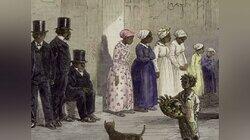
The Age of Slavery (1800-1860)
This episode illustrates how black lives changed dramatically in the aftermath of the American Revolution. For free black people, these years were a time of opportunity, but for most African Americans, the era represented a new nadir. King Cotton fueled the rapid expansion of slavery into new territories and the forcible relocation of African Americans to the Deep South. Yet, as slavery intensified, so did resistance. Individuals including Harriet Tubman, Richard Allen, and Frederick Douglass pushed the issue of slavery to the forefront of national politics. From individual acts to mass rebellions, African Americans demonstrated their determination to undermine and ultimately eradicate slavery.
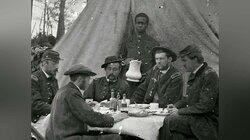
Into the Fire (1861-1896)
This episode examines the most tumultuous and consequential period in African-American history: the Civil War and the end of slavery, and Reconstruction's thrilling but brief "moment in the sun." From the beginning, African Americans were agents of their liberation - by fleeing the plantations and taking up arms to serve in the United States Colored Troops. After Emancipation, African Americans sought to realize the promise of freedom - rebuilding families shattered by slavery; demanding economic, political, and civil rights; even winning elected office - but a few years later, an intransigent South mounted a swift and vicious campaign of terror to restore white supremacy and roll back African-American rights. Yet the achievements of Reconstruction remained in the collective memory of the African-American community.
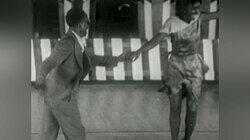
Making a Way Out of No Way (1897-1940)
This episode portrays the Jim Crow era when African Americans struggled to build their own worlds within the harsh, narrow confines of segregation. At the turn of the 20th century, a steady stream of African Americans left the South, fleeing the threat of racial violence and searching for opportunities in the North and West. Leaders like Ida B. Wells, W.E.B. Du Bois, Booker T. Washington, and Marcus Garvey organized, offering different strategies to further black empowerment and equality. The ascendance of black arts and culture showed that a community with a strong identity and sense of pride was taking hold in spite of Jim Crow. "The Harlem Renaissance" redefined how America saw African Americans - and how African Americans saw themselves.
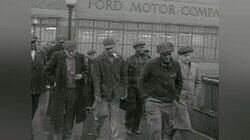
Rise! (1940-1968)
This episode examines the long road to civil rights when the deep contradictions in American society finally became unsustainable. African Americans who fought fascism in World War II came home to face the same old racial violence. But mass media - from print to radio and TV - broadcast that injustice, planting seeds of resistance. The success of black entrepreneurs and entertainers fueled African-American hopes and dreams. In 1955, Rosa Parks refused to give up her seat on a city bus in Montgomery, Alabama, heralding the dawn of a movement of resistance, with Dr. Martin Luther King, Jr. as its public face. Before long, masses of African Americans practiced this nonviolent approach to integrate blacks and whites in public schools, lunch counters, and more. Nonviolence, however, was often met with violence. In 1968, Dr. King was assassinated, unleashing a new call for "Black Power" across the country.
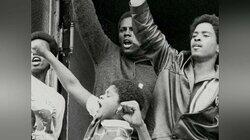
A More Perfect Union (1968-2013)
After 1968, African Americans set out to build a bright future on the foundation of the civil rights movement's victories, but a growing class disparity threatened to split the black community. As African Americans won political office across the country and the black middle class made progress, larger economic and political forces isolated the black urban poor. When Barack Obama was elected president in 2008, many hoped that America had finally transcended racism. By the time of his second victory, however, it was clear that many issues, including true racial equality, remain to be resolved. How will African Americans help redefine the United States in the years to come?
Recently Updated Shows

The Tonight Show Starring Jimmy Fallon
Emmy Award and Grammy Award winner Jimmy Fallon brought NBC's "The Tonight Show" back to its New York origins when he launched The Tonight Show Starring Jimmy Fallon from Rockefeller Center. Fallon puts his own stamp on the storied NBC late-night franchise with his unique comedic wit, on-point pop culture awareness, welcoming style and impeccable taste in music with the award-winning house band, The Roots.

Doc
Doc centers on the hard-charging, brilliant Dr. Amy Elias, Chief of Internal and Family Medicine at Westside Hospital in Minneapolis. After a brain injury erases the last eight years of her life, Amy must navigate an unfamiliar world where she has no recollection of patients she's treated, colleagues she's crossed, the soulmate she divorced, the man she now loves and the tragedy that caused her to push everyone away. She can rely only on her estranged 17-year-old daughter, whom she remembers as a 9-year-old, and a handful of devoted friends, as she struggles to continue practicing medicine, despite having lost nearly a decade of knowledge and experience.
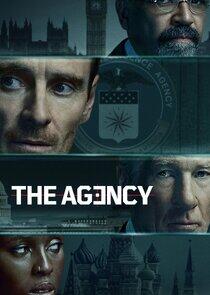
The Agency
The Agency follows Martian, a covert CIA agent ordered to abandon his undercover life and return to London Station. When the love he left behind reappears, romance reignites. His career, his real identity and his mission are pitted against his heart; hurling them both into a deadly game of international intrigue and espionage.

Dexter: Original Sin
Set in 1991 Miami, Dexter: Original Sin follows Dexter as he transitions from student to avenging serial killer. When his bloodthirsty urges can't be ignored any longer, Dexter must learn to channel his inner darkness. With the guidance of his father, Harry, he adopts a Code designed to help him find and kill people who deserve to be eliminated from society without getting on law enforcements' radar. This is a particular challenge for young Dexter as he begins a forensics internship at the Miami Metro Police Department.
